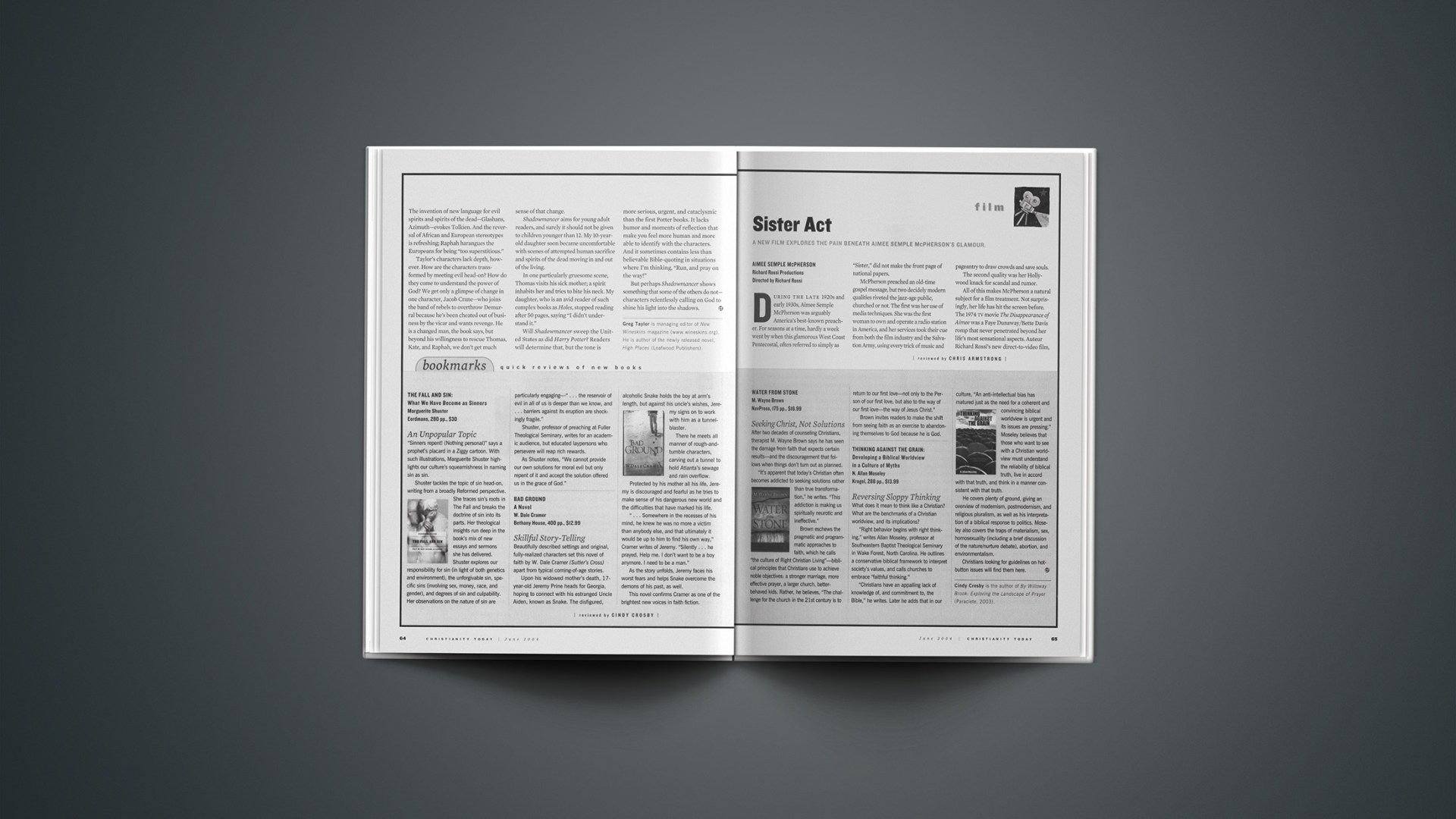 |
“Sinners repent! (Nothing personal)” says a prophet’s placard in a Ziggy cartoon. With such illustrations, Marguerite Shuster highlights our culture’s squeamishness in naming sin as sin.
Shuster tackles the topic of sin head-on, writing from a broadly Reformed perspective. She traces sin’s roots in The Fall and breaks the doctrine of sin into its parts. Her theological insights run deep in the book’s mix of new essays and sermons she has delivered.
Shuster explores our responsibility for sin (in light of both genetics and environment), the unforgivable sin, specific sins (involving sex, money, race, and gender), and degrees of sin and culpability. Her observations on the nature of sin are particularly engaging—” … the reservoir of evil in all of us is deeper than we know, and … barriers against its eruption are shockingly fragile.”
Shuster, professor of preaching at Fuller Theological Seminary, writes for an academic audience, but educated laypersons who persevere will reap rich rewards.
As Shuster notes, “We cannot provide our own solutions for moral evil but only repent of it and accept the solution offered us in the grace of God.”
Copyright © 2004 Christianity Today. Click for reprint information.
Related Elsewhere:
The Fall and Sin is available from ChristianBook.com and other book retailers.
Eerdmans has more information on the book.
In 2000, Christianity Today published “Stony the Road We Trod,” an article by Shuster on God’s redemption of our sinful actions.
Fuller Theological Seminary has a brief information page on Shuster.
30 Good Minutes has the text of Shuster’s sermon “Recollection,” along with an interview.










